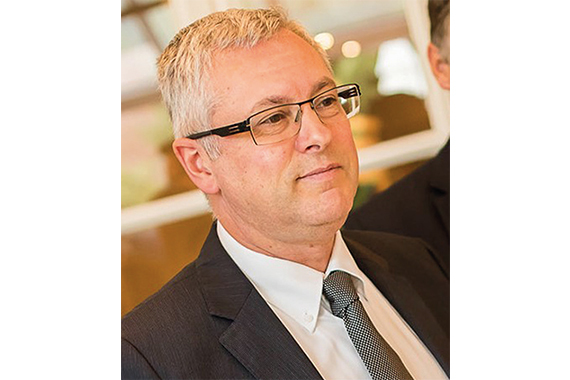More news
- Ask Joe Powder – October 2024
- Chinese paint majors look to domestic consumer sales as commercial real estate slumps
- Architectural coatings in Nepal and Bhutan
- A wild ride for U.S. construction and housing: Coatings and adhesives opportunities in 202...
- Levant paint industry and market marred by armed conflict and civil turmoil

PPCJ spoke to leading members of the coatings community who are exhibiting at the Middle East Coatings Show, to discover the challenges and trends facing the industry and how they plan to return to ‘business as usual’.
First we spoke to Gert Van Herwegen, Sales Manager/Managing Partner at DE VREE
Why is the Middle East an important region to De Vree?
For quite some time now, the Middle East is no longer an emerging market for paint and coatings manufacturers or for suppliers catering to that market, regardless of whether you are a machine manufacturer like De Vree, or maybe a raw materials distributor or a consultant. It’s a mature market that is still growing with lots of exciting new developments still ahead of us. When I participated in the very first MECS, with just a handful participants in what I recall was the ballroom of the Hyatt hotel, I used to refer to projects outside of the Middle East to convince potential customers here. Today, I may use De Vree references in, for example, the UAE, Saudi Arabia, Egypt, Oman, Sudan etc, to try and convince customers outside of the Middle East.
What products or technology do you have on display at MECS?
We will not be showing any machines in our booth. We have a very wide variety of filling possibilities, from very simple semiautomatic weight fillers to fully automatic high speed filling and packaging lines. It’s not possible to show one of these high speedlines for obvious reasons and having just a small semi-automatic machine on display may give the wrong impression, namely that that is all you have. Of course there are videos and such, but we prefer to sit down with our visitors and listen to their needs first. Very likely we can then offer them a bespoke solution – and maybe we prefer not to show that solution to our competitors, who are also participating in the show!
What industry trends are currently influencing De Vree?
No doubt, it’s the quest for a cleaner environment, which means that our customers expect machines that are easier to clean, with less water or solvent. De Vree has taken giant steps forward in this area and we will continue to look for even better solutions.
How has COVID-19 impacted operations at De Vree? When do you expect it to be "business as usual”?
Fortunately, we have been spared serious cases among our employees and we have been able to continue work as usual. During the lockdowns, a lot of people started redecorating their homes so we saw a rise in demand from our customers that produce paints and other products for the DIY market. Apart from that, we were very much surprised that business did not slow down at all – on the contrary, 2020 was a record year for De Vree and already we know that 2021 will outperform 2020.
Aside from COVID, what, in your opinion, are the most pressing challenges in the industry at the moment and how do you address them?
"It’s the environment, stupid”, and for De Vree to address that industry challenge, again, it means machines that are easier to clean. Our biggest challenge has always been, and will always be, to try and stay ahead of the competition by presenting new and improved technical solutions to our customers. New development driven companies like, for example, De Vree will get copied sooner or later –usually poorly copied I must say – so you can never rest on your laurels.
The most pressing challenge in the industry on short term, however, seems to be the struggle for raw materials. Fortunately, this does not affect De Vree directly but of course, if our customers cannot produce because of a lack of raw materials, obviously there will be no immediate investments in new production and filing/packaging equipment.
How important do you think doing business in person will be in aiding post COVID-19 recovery for businesses in the industry?
Extremely important. Because of travel restrictions we’ve had to conduct a lot of our business through video conference calls. This has proven to be a great tool but at some point, you hit the limits. You have to be able to go on site, where you see and notice things that no one may think about during a conference call. I also miss the personal contact, sometimes being immersed in a foreign culture and learning from it. Let’s face it, conference calls take all the fun away!



